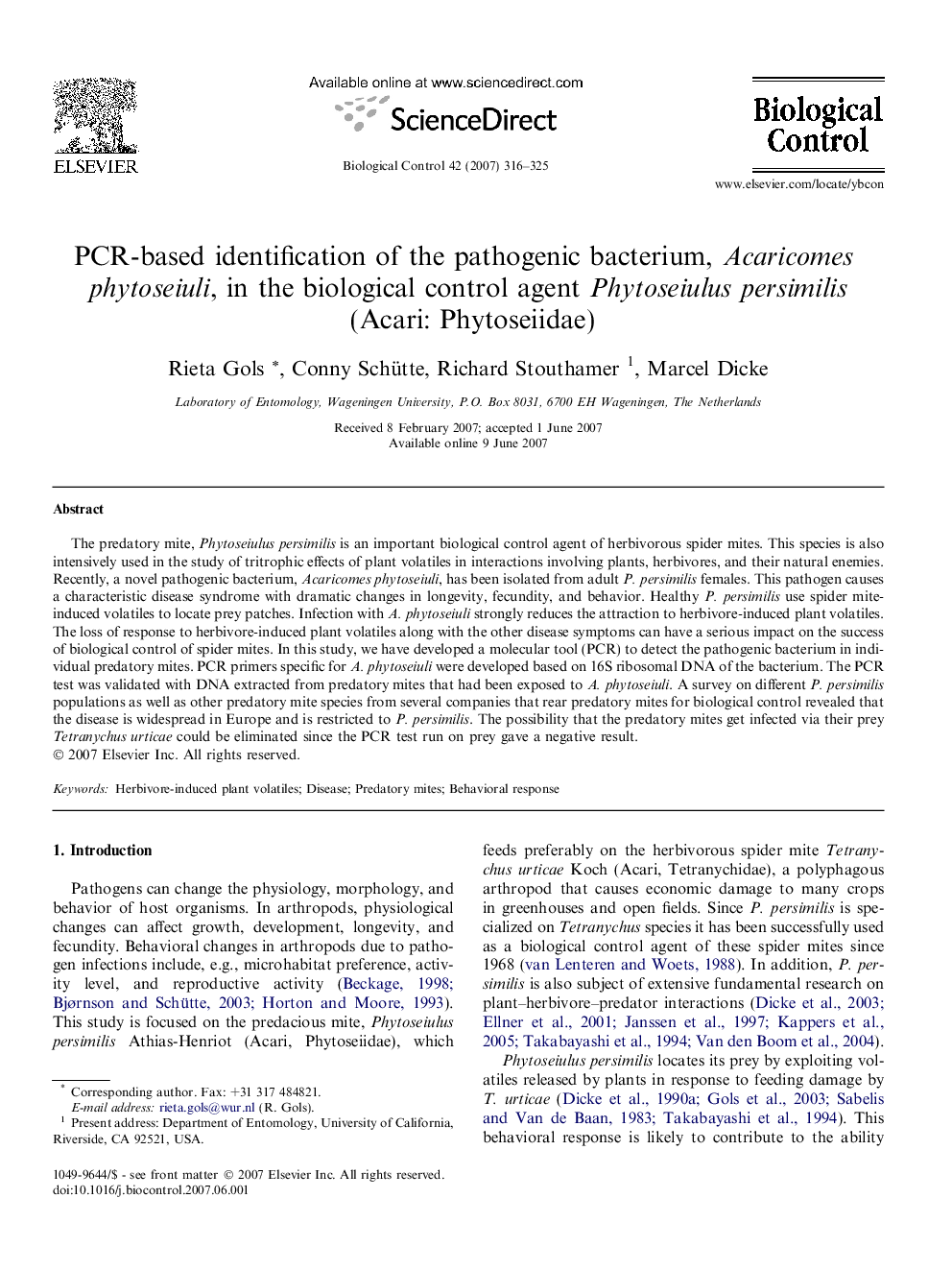| Article ID | Journal | Published Year | Pages | File Type |
|---|---|---|---|---|
| 4505069 | Biological Control | 2007 | 10 Pages |
The predatory mite, Phytoseiulus persimilis is an important biological control agent of herbivorous spider mites. This species is also intensively used in the study of tritrophic effects of plant volatiles in interactions involving plants, herbivores, and their natural enemies. Recently, a novel pathogenic bacterium, Acaricomes phytoseiuli, has been isolated from adult P. persimilis females. This pathogen causes a characteristic disease syndrome with dramatic changes in longevity, fecundity, and behavior. Healthy P. persimilis use spider mite-induced volatiles to locate prey patches. Infection with A. phytoseiuli strongly reduces the attraction to herbivore-induced plant volatiles. The loss of response to herbivore-induced plant volatiles along with the other disease symptoms can have a serious impact on the success of biological control of spider mites. In this study, we have developed a molecular tool (PCR) to detect the pathogenic bacterium in individual predatory mites. PCR primers specific for A. phytoseiuli were developed based on 16S ribosomal DNA of the bacterium. The PCR test was validated with DNA extracted from predatory mites that had been exposed to A. phytoseiuli. A survey on different P. persimilis populations as well as other predatory mite species from several companies that rear predatory mites for biological control revealed that the disease is widespread in Europe and is restricted to P. persimilis. The possibility that the predatory mites get infected via their prey Tetranychus urticae could be eliminated since the PCR test run on prey gave a negative result.
